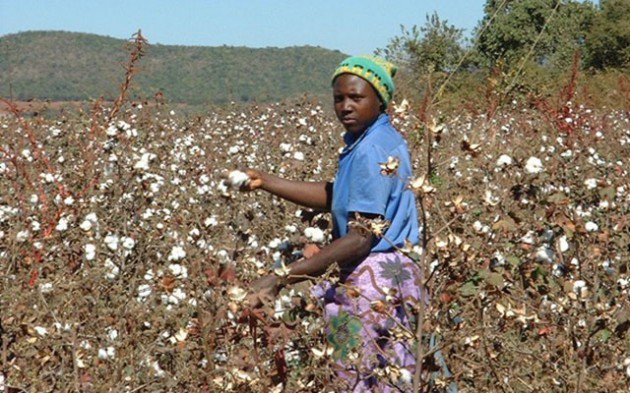Source: private cotton firms in a quandary | The Herald September 29, 2017
Private firms, which used to control 65 percent of the market, saw their share shrinking to below 30 percent after Government, through Cottco, heavily invested in the industry
Business Reporter
Some private cotton companies are in a quandary over whether to contract farmers next season following poor intakes, which saw them losing a substantial market share. Private firms, which used to control 65 percent of the market, saw their share shrinking to below 30 percent after Government, through Cottco, heavily invested in the industry.
In the last season, Cottco bought 54 000 tonnes of cotton out of nearly 75 000 tonnes. Cottco is running the Government’s Presidential Input Scheme, which was an investment of nearly $70 million in the past two seasons with upwards of 155 000 farmers benefiting. This year, the Government will invest $60 million. For years, private companies enjoyed the bigger market share but were often accused of promoting side marketing.
Their financing models were also regularly slammed for being exploitative, a development, which forced thousands of farmers out of production. Some companies were providing inputs at inflated prices yet buying the commodity at very low prices. Farmers were essentially providing free labour as all income would go towards debt repayment. After the Government announced the $60 million free input package, private firms “are feeling there is no space” for them to participate during the next season, source said.
So difficult is the situation that some companies are reportedly lobbying the Government to be given contracts to also administer the Presidential Input Programme. While the private contractors found the going tough in the previous season after being out muscled by Cottco, questions abound over their capability to deliver under a much bigger scheme. It is understood some of the private players have launched spirited campaign to discredit how Cottco handled the Presidential Inputs Scheme despite evidence on the ground suggesting the scheme was a major success.
Despite some downgrading factors, including excessive rains, which made crop management and pest control a nightmare, cotton production rose by 150 percent this year. Other cotton producing countries such as Zambia and Mozambique have also recorded lower than expected output due to excessive rains received in most part of the region.
“The Presidential Input programme has crowded out several private companies, which are finding it hard to invest this year,” said a senior official with a private company. We have lost market share this year and with Government planning to provide finance to 400 000 households, there is definitely no space for us. We did not buy much in the just ended season, as deliveries by our farmers was affected by the excessive rains. It is for this reason that we would want to also manage at least 30 percent the inputs.”
Observers, however, said it is now difficult for private companies to convince farmers to join their schemes when farmers were receiving free inputs from the Government. In addition, farmers were short-changed in previous seasons. Besides being promising farmers full input packages, most of the private companies only provided seed.
“Some of these companies were essentially providing cosmetic financing to warrant their presence at buying points. But with this Presidential Free Input Scheme, which has seen output more than doubling, it will be difficult to entice farmers to join their schemes. Farmers were adequately funded and timely paid. They are receiving some inputs this season; so convincing farmers to join their schemes will be very difficult,” another source said.
Industry sources said some firms had started laying off workers while others were looking at setting up value addition facilities such as ginneries and seed oil crushing plants.
“It is difficult to participate at primary level because Government is investing and some companies are now looking at opportunities along the value chain,” said one source.
Companies willing to contract farmers are required to register with the Agriculture Marketing Authority. The registration deadline for this year is end of this month, but can be extended to end of October, said an official with one of the companies.
Efforts to get an official comment from AMA proved fruitless by the time of going to print yesterday.

COMMENTS